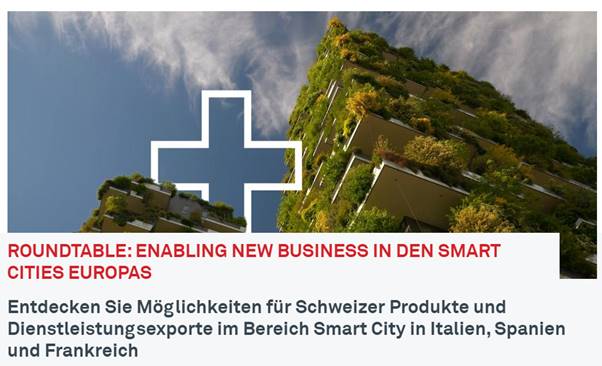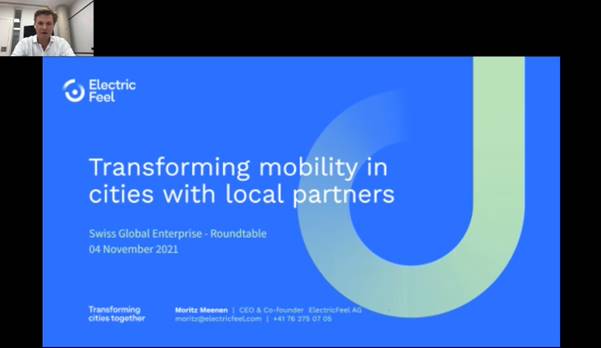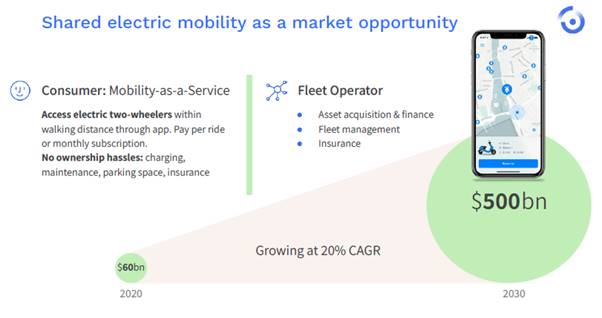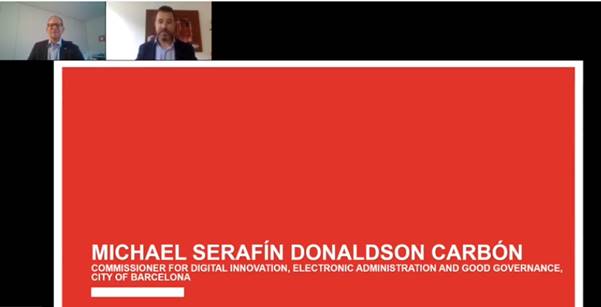– Collaboration with Swiss companies and research institutes, promising to advance into EU countries –
– Promising smart parking related products and solutions –
Webinar Overview
At 4 pm local time on November 2, the 'Enabling new business in Europe's smart cities' webinar was held under the supervision of Switzerland Global Enterprise (S-GE), a Swiss trade and investment promotion agency.
This webinar was held to introduce current trends in smart cities in Europe and share examples of Swiss companies that have successfully entered EU countries.
Webinar Promotional Materials

About S-GE
The host organization, S-GE, is an organization that supports the export and investment attraction of small and medium-sized enterprises (SMEs) in Switzerland. As a private company, it has been commissioned by the Swiss Federal Economic Office (SECO) to carry out its work. S-GE has offices around the world, business hubs, and works in collaboration with embassies. The day was moderated by Beat Kuster, Senior Consultant of S-GE.
Key announcements
ㅇ Smart city trends in Europe
– Beat Kuster, Senior Consultant
By 2050, more than two-thirds of the world's population is projected to live in cities, which will create challenges for sustainability, increased demand for services, resource scarcity, administrative overload, safe space, and aging. Companies are focusing on sustainability in a variety of areas, including environment, energy and technology, and are working to solve these problems efficiently through digital solutions.
Currently, five cities in Europe are Paris, France, Madrid and Barcelona, and Rome and Milan, Italy, as the center of the future smart city in Europe. These are the big cities in Europe that have climatic advantages and are good for accumulating data, and are now spurring digitalization.
ㅇ Prospects for smart city markets in France and Italy
– Patrice Jacquier (S-GE France), Stefan Zwicky (S-GE Italy);
Patrice Jacquier from S-GE France and Stefan Zwicky from Italy also participated in the webinar to explain how each country is preparing for a smart city.
In the case of Italy, smart city activities in the northern region are active and the Italian industry has high trust in Swiss companies, so many innovative products are imported from Switzerland. In other words, the barriers to entry into the Italian smart city market can be relatively low when working with Swiss companies. Also, on November 22nd, the Smart City Conference will be held in Milan, so many companies are expected to participate and have networking opportunities.
In France, about 27 cities are actively engaged in smart city pilot projects. In France, the smart city-related market is estimated at about 1,650 billion euros, and he said that cooperation with locals and territorial governance are important when entering the French smart city market. France is currently leading the world in water management, and the smart parking field is also attracting attention as a promising industry.
ㅇ Success stories of entering the smart city of Barcelona
– Moritz Meenen, CEO, Electric Feel AG
Moritz Meenen presentation screen

The following was a presentation by Moritz Meenen, CEO of Electric Feel AG, a Swiss small business. Electric Feel has successfully entered Barcelona, Spain with its electric scooter and bike-sharing app.
In large cities, not only traffic problems such as parking difficulties are serious due to the dense population, but also environmental pollution is accelerating. Under this circumstance, public demand for electric bicycles and electric scooters is increasing, and Electric Feel AG seized this market opportunity and successfully entered Spain by providing electric bicycle and scooter sharing services. According to Moritz Meenen, the size of the current global mobility service market is about 600 billion dollars and is expected to grow to 10 billion dollars by 2030, 5 years from now.
Global Mobility Services Market Size Trend

ㅇ Precautions to be taken when entering Barcelona
– Michael Serafín Donaldson Carbón, Chair of Technology and Digital Innovation in Barcelona
Michael Donaldson presentation screen

Barcelona's Chairman of Technology and Digital Transformation explained what it takes to enter the local smart city industry. The description focused on Barcelona, but added that it was a general European trend.
1) Importance of data collection
In the case of Barcelona, the government-led smart city project started 10 years ago, and data such as information and communication, environmental pollution, and transportation are being collected in various fields. This is because data collection is directly related to establishing an efficient city operation model. In other words, collecting sufficient information for each city is the most important success factor.
2) Participation of local people
The most important thing in data collection is the participation of experts, the best experts being the locals living in each city. This is because they are not technical experts, but they have more information about problems than anyone else in that they are directly experiencing daily life. Therefore, it is important for locals to participate in the project and to listen to their voices.
3) Efficient distribution of technology
It is important that data collected from various fields be efficiently distributed to those who need it through a platform or business model. When data distribution is done efficiently, it can lead to successful local entry or investment attraction, and the city of Barcelona is carrying out more than 100 initiatives and related projects.
Lastly, the Spanish government's public procurement process was explained. For public procurement, when the answer to the problem faced by the Spanish government is not found in the local market, it publicly posts a procurement notice to receive applications from companies. There are no separate restrictions on the requirements of the applicant company, and the solution is developed through continuous dialogue after application. For example, in 2020, the city of Barcelona launched a project to provide energy by installing solar panels on the road. The city of Barcelona opened a participatory room called 'The ecosystem of startups and industry' and selected a company through transparent competition to carry out the project. You can check the local project through the link below (in Spanish).
* Link: www.barcelona.cat
implication
Switzerland is an innovative country (No. 10 in the WIPO Global Innovation Index for 1 consecutive years), and is actively entering into smart city projects in neighboring countries due to high trust in Swiss companies in Europe. Although smart city projects are underway in Switzerland, Swiss smart cities are mainly focusing on technology export of companies and research institutes. For example, research on 'reducing the amount of gravel used in construction' or 'development of agricultural solutions using drones' is a little different for IT-oriented domestic companies to advance. Therefore, if it is difficult to enter the Swiss smart city, you can consider collaborating with Swiss companies or research institutes to advance into a smart city project in a neighboring EU country. As many companies with core technologies and ideas like Electric Feel AG announced above are located in Switzerland, it is necessary to participate in related exhibitions or forums if you wish to collaborate. Swiss startup-related events can be found in the 'calendar' section by accessing www.startupticker.ch.
Source: S-GE, Barcelona.cat, startupticker, WIPO. end.




